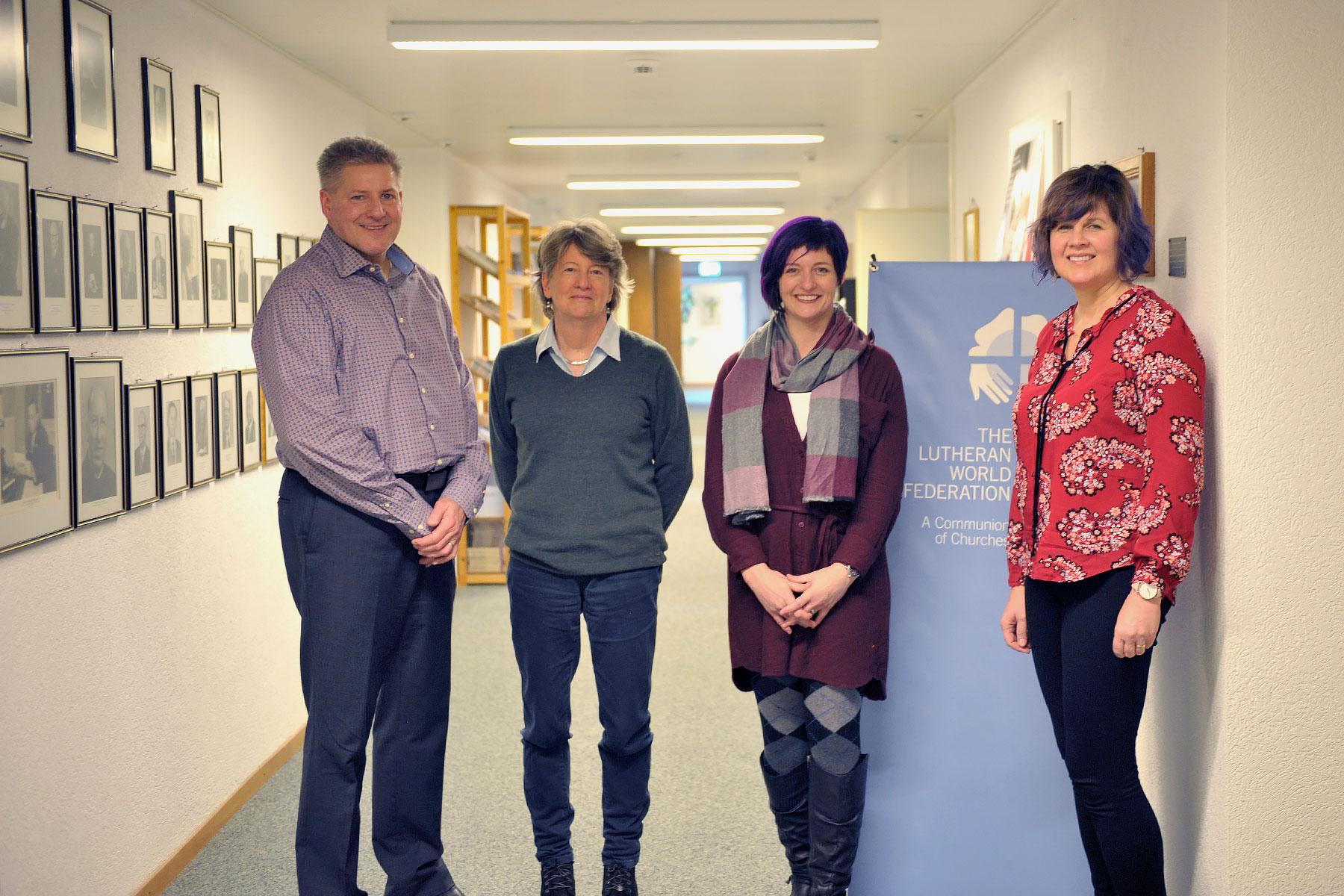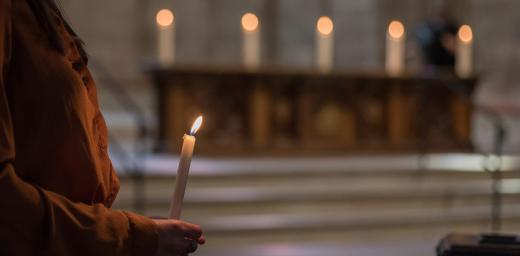USA seminarians reflect on global ecumenism and reconciliation

From left to right, Wartburg professor of pastoral theology, Rev. Nathan Frambach, LWFâs communications officer, Philippa Hitchen, 3rd year student Carrie Petersen and 2nd year student Marietta Nelson-Bitte. Photo:LWF/N. Torrecillas
Iowa’s Wartburg seminary students visit LWF Communion Office
(LWI) - How much do Lutherans in the United States know and work with members of other Christian churches? What role do they see for the LWF Communion Office here in Geneva? And how can the church combat a mind-set of separation by creating spaces for encounter and conversation?
Those questions were under the spotlight during a visit to the Lutheran World Federation (LWF) headquarters in Geneva by a group of students and professors from the Wartburg Theological Seminary in Dubuque, Iowa, in the Midwestern USA.
The students, who are all members of the Evangelical Lutheran Church in America (ELCA), spent several days in Geneva on the first leg of a cultural-immersion trip that also took them on to the Institute for Ecumenical Research in Strasbourg and the Taizè ecumenical community in eastern France.
The ‘J-term’ or January term journey was led by Rev. Nathan Frambach, professor of pastoral theology at the seminary. He sat down with two second and third-year Masters of divinity students, Marietta Nelson-Bitte and Carrie Petersen, to talk about their expectations and their commitment to ecumenical dialogue.
Reconnecting with ecumenism
Frambach explains that the purpose of the trip is to “help all of us become more aware of, and attuned to, the work of reconciliation and how it’s connected to ecumenism.”
Nelson-Bitte notes that she had until now had “very limited experience of ecumenism”, adding that she hoped the trip “will awaken in me a sense of my connection to the body of Christ, and the other people in the body of Christ who are my brothers and sisters”.
Petersen says that although she was raised as a Lutheran, she had grown away from the church and “had experiences in many different faith traditions”. Having returned to her Lutheran roots, she’s hoping this journey will help her deepen her understanding of what it means to be a “positive” part of the global community of believers.
Reflecting on relations between the different Christian churches in America, Frambach says he believes both the Wartburg seminary and the ELCA “is providing some important leadership” through a visible commitment to ecumenical dialogue. He notes that there has been a “very productive” dialogue with the Roman Catholic church for many years, and that the ELCA has full communion agreements with Episcopalians, Moravians, Methodists and the United Church of Christ.
Places to meet our neighbours
Recalling a previous trip to the Texas-Mexico border, Nelson-Bitte says that at a time when “we talk a lot about building walls”, she learned “about thinking of those borders as liminal, as places not where we are separated, but where we meet our neighbours”, having conversations, rather than focusing on our differences.
Petersen reflects on the current tensions in American society which she sees as the “growing pains” of our rapid internet connectivity, similar to what happened during the industrial revolution. One very important thing the church can do, she says “is to see these boundaries as opportunities for relationships”. While relationships develop between people, she explains, they “take place in the space between those entities and I believe passionately about consciously inviting the Holy Spirit into those spaces, all the time, every day” in order to bring hope to the world.
I believe passionately about consciously inviting the Holy Spirit into those spaces, all the time, every day
Asked about their visit to LWF Communion Office, Frambach says: I think what we’ve experienced here is a degree of hospitality that’s deeply rooted in the mutual relationship we share in Christ but also with one another.
Nelson-Bitte describes the LWF as “an incredible role model for how we are church together”, adding that it’s an “almost magical place” where the Lutheran commitments to the SDGs, gender justice or climate action are realised.
The LWF is an incredible role model for how we are church together
Petersen concludes that the LWF goals and initiatives “go against the ways our world works, so when we, as church workers, are trying to implement some of this kingdom of God breaking into our world, we can often feel alone in that endeavour. “I know now that I’m not alone”, she said, adding that “it’s an amazingly comforting and beautiful feeling that I will always be grateful for”.





